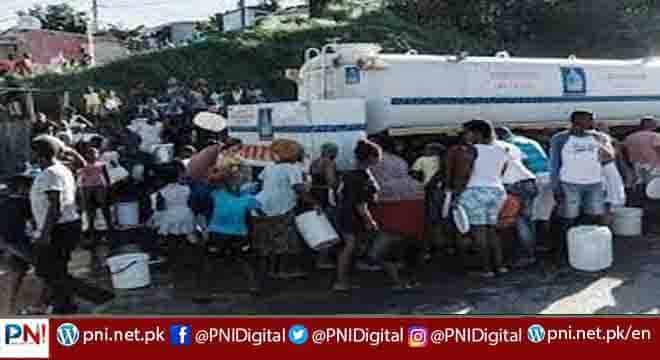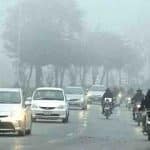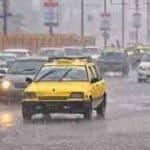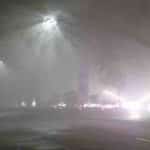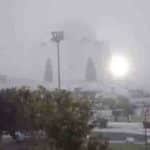Durban, South Africa, April 21 (AFP/APP): After floods ravaged South Africa’s coastal city of Durban, residents queue atop a hill on a long wait for an empty water truck to return full, as fears of disease spread.
But four hours later, the vehicle has still not come back to Mariannhill suburb.
Fears are mounting of waterborne illnesses from supplies people have been scavenging.
“Multiple people are getting a running (tummy). They don’t know what the cause (is) but it is happening just after we don’t have water,” says Mthobisi Myaka, 23, whose older brother was among those who had been sick in recent days.
Another woman waiting in the same queue adds that people in her neighbourhood are getting sick.
Myaka says he has been boiling water at his home using coal and wood gathered from the debris of the storm. Still, he and his two brothers he lives with aren’t certain about its safety.
“That’s why we’re standing here. At least water from the tank may be more healthy,” he adds.
Catastrophic floods, the worst in the country’s living memory, killed 435 people, damaged critical infrastructure in the city and surrounding areas and left hundreds of thousands of people without water or electricity.
State-run provider Umgeni Water says two of the four major aqueducts that run water to the treatment plant that supplies Durban are broken.
While repairs are underway, there is still a shortfall of 100 mega-litres daily.
– ‘Worried’ –
Charity organisations have also been scrambling alongside the government to deliver water along with blankets and other necessities.
While local government officials have said water tanks are being distributed to affected areas, in this western suburb of Mariannhill, residents say they haven’t seen any.
Spha Dumasani, 35, has been collecting water from a broken pipe further down the hill to survive the past 10 days. But it it’s not enough.
“We are suffering,” he says. “We want to wash ourselves, to cook with the water. I’m so worried”.
Dripping with sweat, under the blazing sun, he intends to stick it out, waiting for the anticipated delivery of clean water.
“We can’t survive without water,” says Dumasani, sitting on a bucket on the roadside between other residents, while rolling a cigarette.
Doctors are concerned about a disease outbreak.
“We are worried that in no time we are going to experience a surge in cases of… (Waterborne illness) because people are getting water from sometimes, unreliable sources.
“Some of that water maybe contaminated and that may lead to cases of enteric conditions where people develop diarrhoea,” says Dr Mvuyisi Mzukwa, chairman of South African Medical Association.
Umgeni Water is still assessing and prioritising the damages, and expects to have a full report ready in order to begin large-scale repairs by Sunday.
Follow the PNI Facebook page for the latest news and updates.


